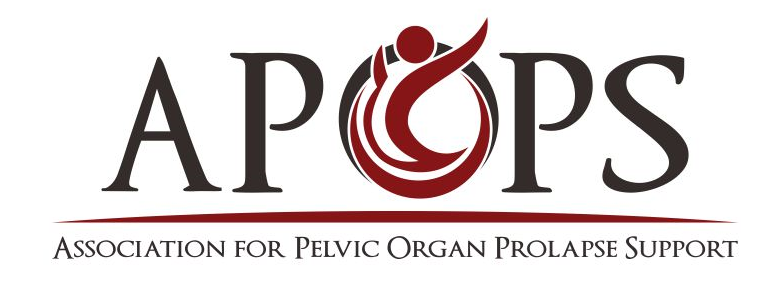MESH PRESENTATION TO THE FDA OB-GYN ADVISORY PANEL
By Sherrie Palm
The following speech was given in Washington DC by Sherrie Palm to the FDA OB/Gyn Advisory Panel Addressing Transvaginal Mesh Protocol on September 8, 2011 in representation of APOPS position on the value of transvaginal mesh procedures for repair of pelvic organ prolapse.
I’m Sherrie Palm, the founder and president of the Association for Pelvic Organ Prolapse Support. Neither me nor APOPS has any financial relationship with any person or group involved in any POP mesh agenda. I am simply a woman who’s had transvaginal mesh surgery to repair pelvic organ prolapse; I had 3 of the 5 types of POP. I am a success story and would like to share some insights with the committee members. Like most women I’d never heard of POP prior to my diagnosis. My urogynecologist utilized a transvaginal mesh procedure for my surgical repair. I had concerns about repeat surgery if mesh was not utilized, an all too common occurrence. I’ve been extremely pleased with the outcome of my surgery for pelvic organ prolapse and I guide others daily how to investigate the benefits of locating a specialist in POP procedures.
As a women’s pelvic health advocate, I truly felt the need to weigh in on this topic. It’s vital that Committee Members recognize that the common denominator for all women is the desire to return their bodies to normal. This is what drives women to seek treatment including surgery for POP. All women with POP have symptoms, ALL WOMEN WITH POP HAVE SYMPTOMS; they just don’t talk about it with their physicians, husbands, even their friends, they are simply too embarrassed -but they talk to me. I speak with women daily regarding the baggage that comes with pelvic organ prolapse.
I’ll admit that I’m a bit more proactive than the average woman; I networked to find the best urogynecologist in my area, I checked her credentials, I went to my appointment with my questions in hand with no intentions of leaving until all of my concerns were addressed. My physician is an expert in her field; she took her time with me and my successful transvaginal mesh procedure substantiates that this treatment option does have great merit.
I recognize that few women do their homework when approaching POP treatment; because of that some women have transvaginal mesh procedures performed by physicians without the proper training and expertise for this procedure. With so many organs, muscles, and connective tissues coming together in a tightly compacted area, it truly takes an expert to get it right. A urogynecologist or female pelvic health urologist should be the physician of choice.
When the efficacy of a medical procedure is questioned, the catalyst typically comes from complaints filed by individuals who suffer complications after having procedures by physicians with inadequate training or experience. My heart goes out to the women suffering with mesh complications; it truly does. I’ve spent time discussing their histories with them and it is vital that we listen to their voices. These are women who had pain and dysfunction, opted for surgery to correct it, and now their pain and dysfunction is compounded. However eliminating this beneficial procedure from POP treatment options is not the answer-monitoring who can perform procedures is a more practical direction. Advancement of any medical pathway will always be littered with the “yikes” factor of those who add procedures to their itinerary as though picking up a tool at Home Depot It has always been this way; it probably always will. Thankfully we have the FDA to monitor and create ballast.
I feel strongly that transvaginal mesh procedures should be recognized as a valuable option in the choices for pelvic organ prolapse treatment. I also feel strongly that these procedures should only be utilized by physicians who are specialists and have gone through the intensive training necessary to perform them. I am hopeful the FDA will consider monitoring the training protocol rather than preventing urogynecologists and urologists from performing transvaginal mesh procedures. It’s likely that the majority of the complications that occur are the result of inadequate training and experience-POP surgery is best left to the experts.
As a women’s pelvic health advocate, every aspect of impact POP has to women is of top priority to me, every single layer-transvaginal mesh is simply one of them. Pelvic organ prolapse is not an American women’s health issue, it is a global women’s health pandemic. There are 3 million women in this country alone with POP. It is imperative that the FDA is intricately involved in the global path to proper diagnostics and treatment for POP along with coordination from NIH and WHO; forward thinking will address the perception of POP as well as the reality of the status quo in all matters POP related including transvaginal mesh.
EVERY VOICE MATTERS
September 2011

